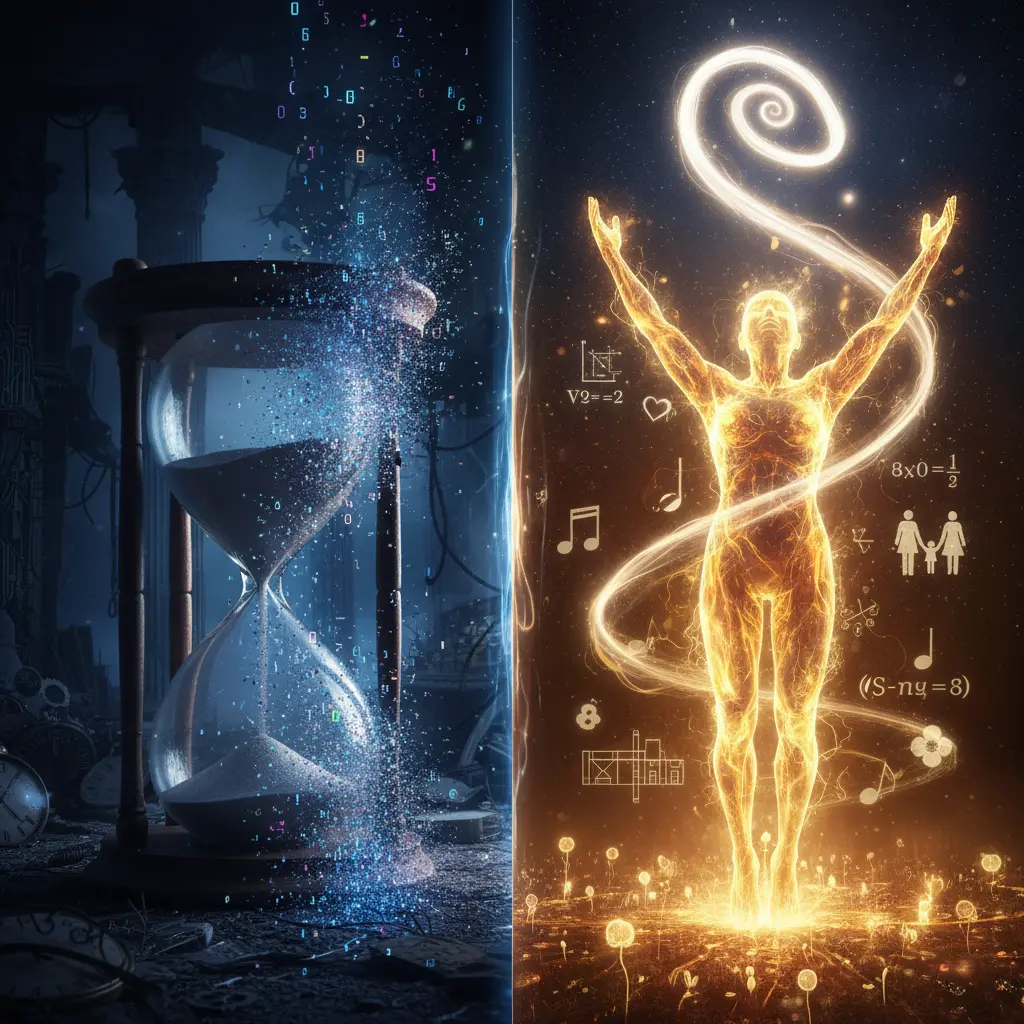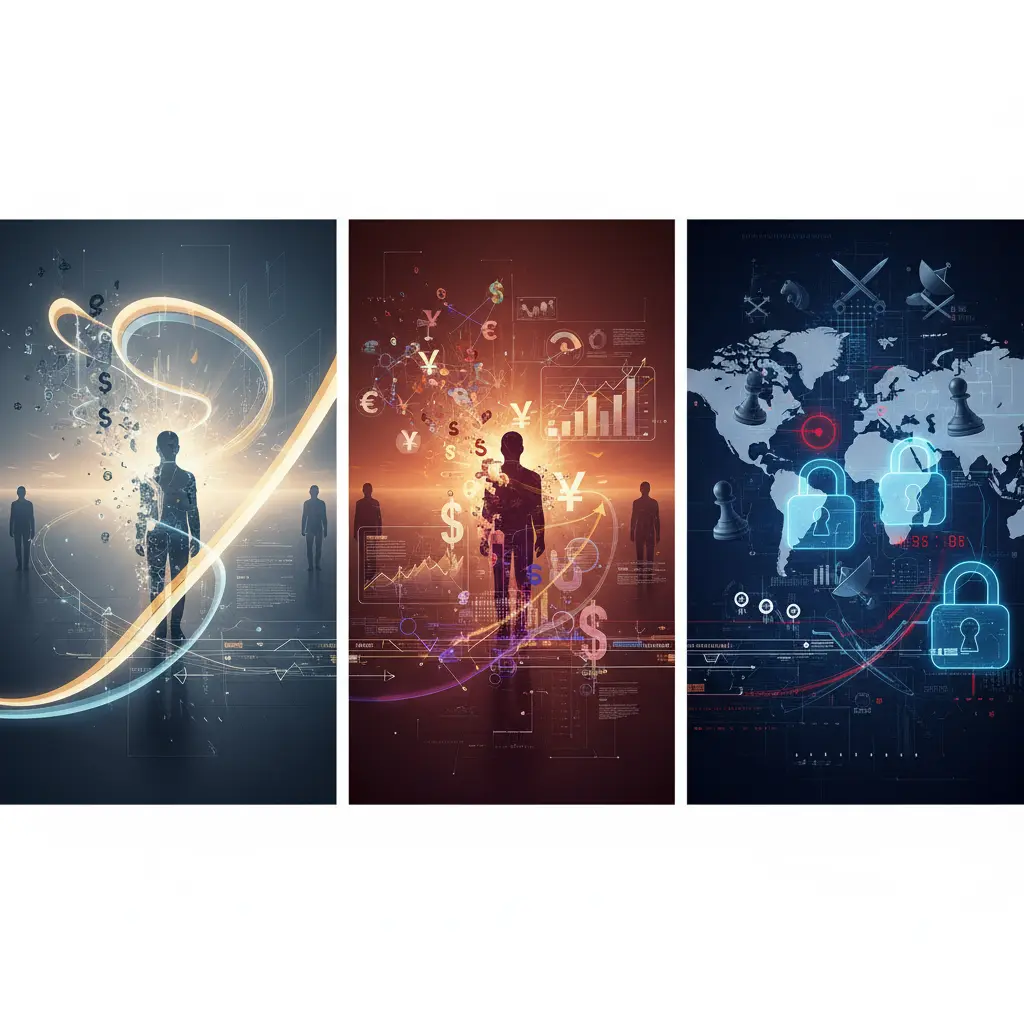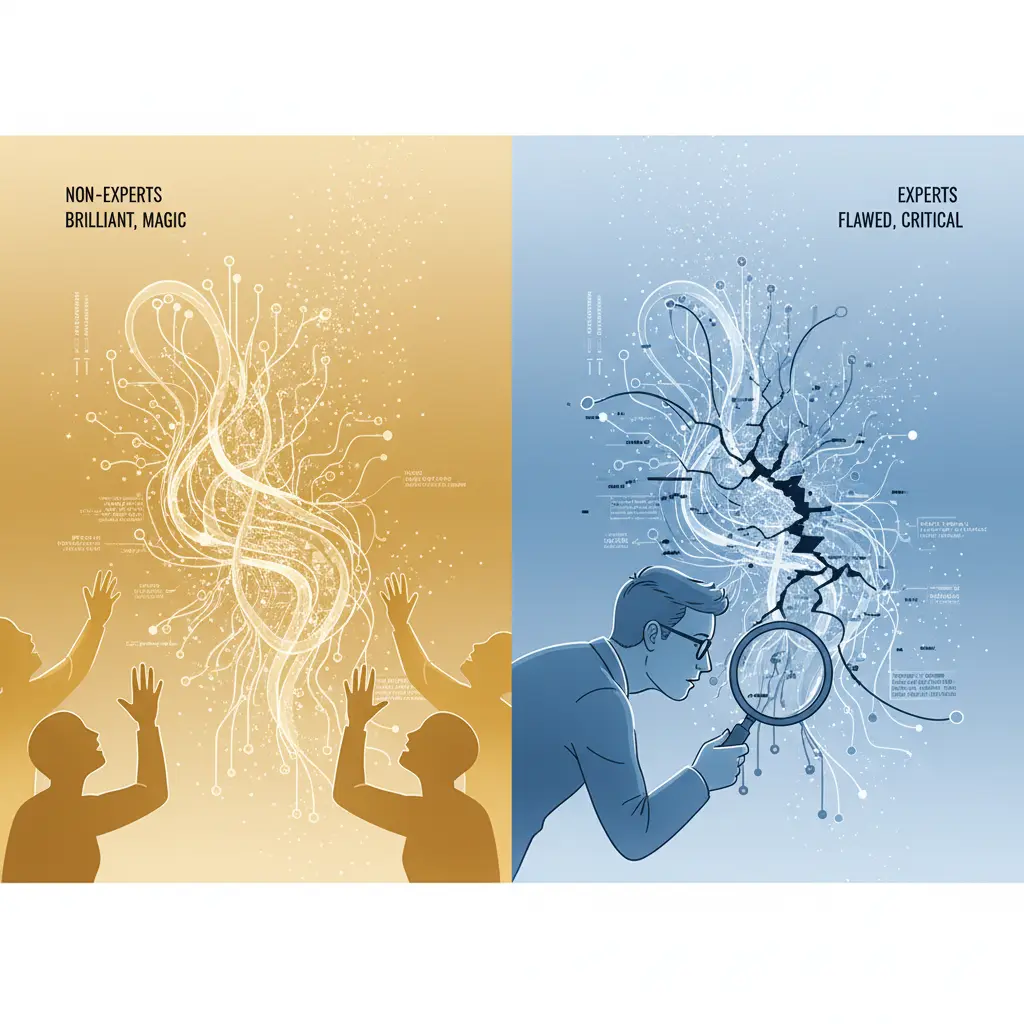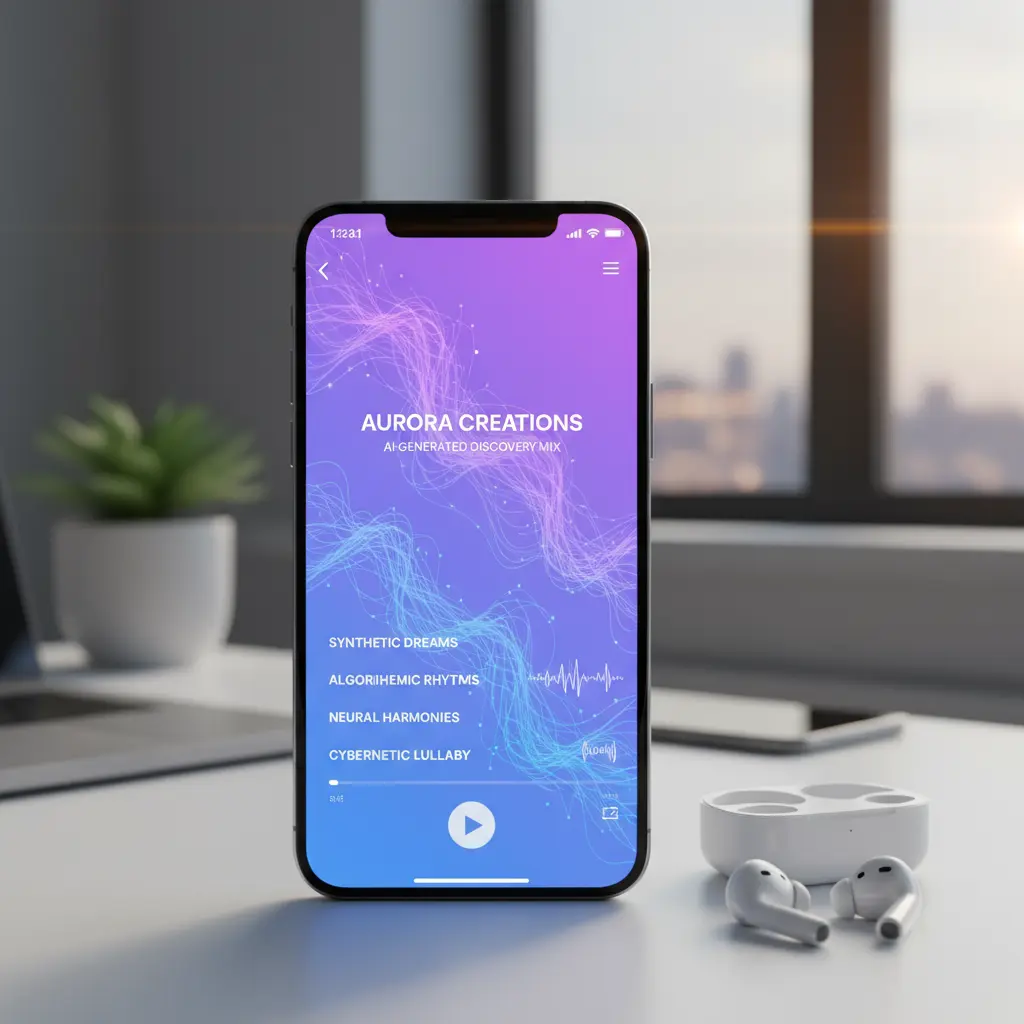Why Death Won't Give Your Life Meaning (And What Will)
Discover why mortality no longer defines meaning and how human agency becomes the new foundation for purpose in an era of radical possibility.

Why Death Won't Give Your Life Meaning (And What Will)
You've been sold a lie.
Every time you watch a vampire film or read about immortality in literature, you're being told the same story: mortality makes us human. Death gives life meaning. Without the ticking clock, we'd be empty, purposeless shells.
Bollocks.
These narratives exist for one reason: to help us cope with the inevitability of ageing and death. They're psychological comfort blankets, not philosophical truths. And as we stand on the edge of the AGI era, it's time to call them out for what they are.
Table of Contents
- The Stories We Tell Ourselves to Sleep Better
- The Real Source of Meaning: Agency, Not Mortality
- The False Assumption About Accumulation
- The AGI Era: Democratising Transformative Power
- The Choice to Die: The Ultimate Agency
- What Actually Destroys Meaning
- The Future We're Building
The Stories We Tell Ourselves to Sleep Better
Pick up Dracula. Read Dorian Gray. Watch any modern vampire series. Notice the pattern? Immortality always corrupts. The endless life always becomes meaningless. The immortal always loses their humanity.
Bernard Williams made this argument academically in 1973, claiming immortal life would inevitably become boring. His logic: you'd either exhaust all your desires, or you'd pursue desires your current self doesn't care about. Either way, meaninglessness wins.
But here's what Williams and every vampire novelist miss: they assume we only accumulate pain over time. They ignore that joy, growth, and mastery compound too.
I'm approaching 40. I feel more alive, more powerful, more capable than I did at 18. Not less. The difference? Agency. The ability to turn thought into reality has expanded dramatically. My capacity to execute on ideas has multiplied. My understanding of what matters has deepened.
And I'm just getting started.
The Real Source of Meaning: Agency, Not Mortality
Meaning doesn't come from life's brevity. It comes from power—the ability to shape reality according to your vision.
What Actually Makes You Feel Alive
Think about what genuinely creates that sense of meaning:
- Creating something that didn't exist before – bringing new ideas into reality
- Solving problems that seemed impossible – breaking through limitations
- Growing your capabilities beyond expectations – expanding what you thought possible
- Building relationships that compound – developing depth and understanding over time
- Mastering skills – opening new domains of possibility
None of these require a ticking clock to matter. In fact, the ticking clock is the enemy. It forces us to settle. To compromise. To accept "good enough" when we could achieve extraordinary.
The Research Challenges the Mortality-Meaning Narrative
Recent research directly challenges Williams' assumptions. Fischer (2009), Levy (2005), and Gorman (2017) argue that certain desires are inherently inexhaustible:
- Knowledge pursuit – you can't run out of things to learn
- Relationship cultivation – you can't exhaust the depth of meaningful connections
- Self-improvement – you can't finish growing
Mitchell-Yellin (2021) goes further, showing that values differ fundamentally from desires. Desires get satisfied and disappear. Values persist. Obtaining what you value doesn't extinguish the valuing. You don't stop caring about family because you have them. You don't stop valuing growth because you've grown.
The False Assumption About Accumulation
The mortality-as-meaning crowd makes a critical error: they assume time only accumulates suffering.
But that's not how life works.
What Actually Compounds Over Time
Yes, you accumulate losses. Relationships end. People die. Opportunities close. But you also accumulate:
- Wisdom from pattern recognition – decades of experience create insights impossible to achieve quickly
- Compound interest on skills – years of development turn difficult into effortless
- Deeper relationships – connections that only time can create
- Mastery – turning the impossible into trivial
- Joy from long-term projects – seeing decades-long visions bear fruit
The Empirical Evidence
Empirical evidence supports this perspective. Krause (2009) found that older adults with a strong sense of purpose show reduced mortality risk. Having meaning doesn't emerge from facing death—it improves health and extends life. The causality runs opposite to what the cultural narrative claims.
I feel this personally. The projects I'm building now would have been impossible at 25. Not because I lacked time, but because I lacked the accumulated capability. The agency I've developed over two decades enables creation at a scale younger me couldn't imagine.
More time means more of this. Not less.
The AGI Era: Democratising Transformative Power
We're entering an age where imagination becomes executable through technology.
AGI will democratise the transformative power that currently belongs only to those with massive resources or rare skills. The gap between thinking something and making it real will collapse.
Why "Second-Tier" Humans Is Actually Positive
Some people panic about this. "What if humans become second-tier to AGI?"
I see it differently:
- More freedom – liberation from constraints that limit possibility
- Longer life – extended healthy lifespan through technology
- Greater happiness – more time for what actually matters
- Wider access to power – democratised capability to create and execute
Even if AGI surpasses human capability in every domain, that's positive. We'd have more time to pursue what actually matters—family, purpose, creation—without the constraint of mortality forcing constant trade-offs.
Values vs. Desires in the AGI Age
The research on values versus desires proves relevant here. Mitchell-Yellin (2021) shows that what threatens meaning isn't longevity but losing what you value. If AGI helps preserve and expand access to what humans value—relationships, growth, creation, exploration—it amplifies meaning rather than destroying it.
The Choice to Die: The Ultimate Agency
Extending lifespan to the point where you choose when to die wouldn't destroy meaning. It would represent meaning's ultimate expression.
Real agency means control over your existence, including its duration. Forced death by biological decay isn't agency. It's the absence of choice.
Imagine This Scenario
Imagine living until you've genuinely exhausted what you want to explore. Until you've pursued every relationship to its natural depth. Until you've created everything you want to create. Until you've grown to the limits of your interest in growing.
Then—and only then—choosing to stop.
That's not meaningless. That's the opposite. It's taking full ownership of your existence rather than having it stripped away by biological accident.
The Narrative Complete
Noonan (2013) argues death can have "life-value" by creating meaningful wholes—complete narratives with specific contributions. But this logic works better when you control the ending. A book's meaning doesn't come from the publisher running out of paper halfway through. It comes from the author choosing where the story ends.
What Actually Destroys Meaning
You know what destroys meaning? Lack of agency.
The Real Threats to Meaningful Life
- Being unable to execute on your ideas – the gap between vision and reality
- Watching opportunities close – running out of time before completion
- Forced endings to relationships – biology killing people, not natural completion
- Impossible trade-offs – choosing between valued pursuits due to time constraints
The Makropulos Case Reconsidered
The Makropulos case—the cautionary tale about a 342-year-old woman finding life meaningless—gets cited as evidence that immortality breeds nihilism. But look closer. Her meaninglessness came from stagnation, not longevity. She stopped growing. Stopped creating. Stopped pursuing new domains.
That's a choice, not an inevitability.
Fischer (2009) and Chappell (2009) note that psychological changes in immortality would mirror those already occurring in worthwhile mortal lives. You already undergo radical transformation from toddler to adult. Your values shift. Your desires change. Yet continuity persists. The same would apply across centuries—continued growth and transformation, not frozen repetition.
The Future We're Building
We're entering an era of immense control and opportunity.
The Convergence of AGI and Longevity
AGI will collapse the gap between imagination and execution. Longevity research will extend healthy lifespan dramatically. The combination means unprecedented agency—the power to turn thoughts into reality across timeframes that actually matter.
This won't diminish humanity. It will amplify it.
What Becomes Possible
- Genuine depth of knowledge – pursuing understanding beyond surface-level forced by time constraints
- Multi-decade relationships – shared growth spanning timeframes that create true depth
- Long-term creative projects – works that take years or decades to fully realise without compromise
- Accumulated mastery – compound growth across domains
The Cultural Narratives Exposed
The cultural narratives about mortality giving life meaning will be exposed for what they are: rationalisations we told ourselves when we had no choice. Comfort stories to make the inevitable feel purposeful.
But we're gaining choice. And with choice comes real meaning—not the meaning of making peace with limitation, but the meaning of fully expressing what humans can become when constraints lift.
The Real Question
So here's what I want you to consider:
If you could live healthily for 500 years, accumulating mastery and relationships and creative output across centuries, pursuing every domain that genuinely interests you, building on decades of compound growth—would that life have less meaning than dying at 80 with most of your potential unrealised?
Or would it have more?
The answer reveals whether you actually believe mortality creates meaning, or whether you've just accepted the story because the alternative seemed impossible.
It's not impossible anymore. And that changes everything.
Key Takeaways
- Meaning comes from agency (the power to shape reality), not from mortality
- Cultural narratives about death creating meaning are rationalisations for inevitable biological limits
- Joy, growth, and mastery compound over time just as losses do
- Values persist unlike desires, making inexhaustible meaning possible
- AGI will democratise transformative power, expanding human agency
- Choice over lifespan represents ultimate agency, not meaninglessness
- We're entering an era where humanity will be experienced more fully, not diminished
Further Reading
- Fischer, J.M. (2009) on inexhaustible desires and immortality
- Mitchell-Yellin, B. (2021) on values versus desires
- Levy, N. (2005) on the psychology of extended lifespan
- Gorman, A. (2017) on sustainable meaning across centuries
- Krause, N. (2009) on purpose and mortality risk
References
- Williams, B. (1973). "The Makropulos Case: Reflections on the Tedium of Immortality"
- Fischer, J.M. (2009). "Our Stories: Essays on Life, Death, and Free Will"
- Levy, N. (2005). "Downshifting and Meaning in Life"
- Gorman, A. (2017). "Temporal Scarcity and Prioritization"
- Mitchell-Yellin, B. (2021). "Values and the Meaning of Life"
- Krause, N. (2009). "Meaning in Life and Mortality"
- Chappell, S.G. (2009). "Infinity Goes Up on Trial: Must Immortality Be Meaningless?"
- Noonan, H. (2013). "The Makropulos Case Revisited"





